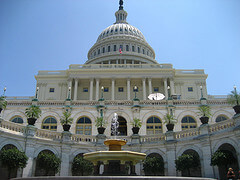President Obama announced executive actions implementing important changes to U.S. immigration laws on November 20, 2014. These changes include the expansion of DACA (Deferred Action for Childhood Arrivals) and the establishment of DAPA – Deferred Action for Parental Accountability. More announcements concerning these changes are expected in February 2015 for DACA and May 2015 for DAPA.
Deferred Action for Childhood Arrivals (DACA)

Image via Flickr
The executive actions include an expansion of the existing DACA program that was established in June 2012. Under the expanded program, the Department of Homeland Security will expand DACA eligibility for people who came into the U.S. as children, commonly referred to as DREAMers.
The expanded pool gives eligibility to those individuals who entered the United States on or before January 1, 2010, were under 16 years of age at the time of entry, and have remained continuously within the country since then. Initially, DACA required that applicants be under the age of thirty-one years at the application time, but under the revised program there is no age limit. Unlike the initial program which offered a two year deferred action, the expanded DACA program grants a three year deferred action to eligible persons. This means first-time DACA applicants, as well as those renewing their status, will be granted a three-year deferred action as well as a work authorization.
DACA targets approximately 300,000 individuals who are potentially eligible for the program. The U.S. Citizenship and Immigration Services (USCIS) will start receiving and acting on new DACA applications 90 days after the President’s announcement, or sometime in February 2015.
Deferred Action for Parental Accountability (DAPA)
The Department of Homeland Security (DHS) will establish a new program targeting the parents of U.S. citizens who do not have legal status (the parents). The DAPA, or Deferred Action for Parental Accountability, program will grant deferred action to eligible parents of United States citizens or parents of lawful permanent residents (LPRs). This will cover children born on or before November 20, 2014.
Individuals eligible for the DAPA program must demonstrate that they have been living within the U.S. since before 2010 and have remained continuously in the country since that date, including on November 20, 2014 and through the date of their application. The DAPA program will grant successful applicants deferred action for a period of three years, just like the expanded DACA program.
The Department of Homeland Security (DHS) believes there is an immigrant population of over four million people who are eligible for this program. The U.S. Citizenship and Immigration Services (USCIS) will start accepting DAPA applications about 180 days from the President’s November announcement, or sometime in May 2015.
Do you believe you are eligible for either the DACA or the DAPA program? If so, it is important to start gathering the necessary documents required for the respective program so that you will be ready when the time comes. You will need required documents to establish your:
- Identity
- Relationship to a lawful permanent resident (LPR) or a U.S. citizen
- Continuous stay within the country for the last five or more years.
In addition to these documents, keep in mind that an experienced immigration lawyer on your side is extremely important. The requirements and procedures for DACA and DAPA are complicated, and having proper legal guidance could mean the difference between a successful application and rejection. Atlanta immigration attorneys Brownstein & Nguyen are experienced in immigration law, and have a proven track record of making a difference for those treading their way through the U.S. immigration system and paperwork. Contact them today for assistance with your immigration needs in the Atlanta area.

